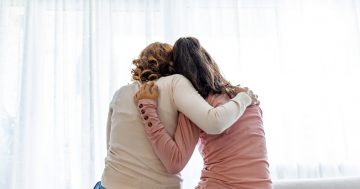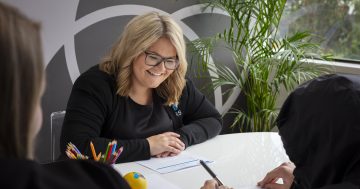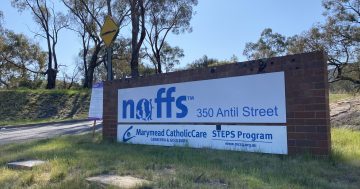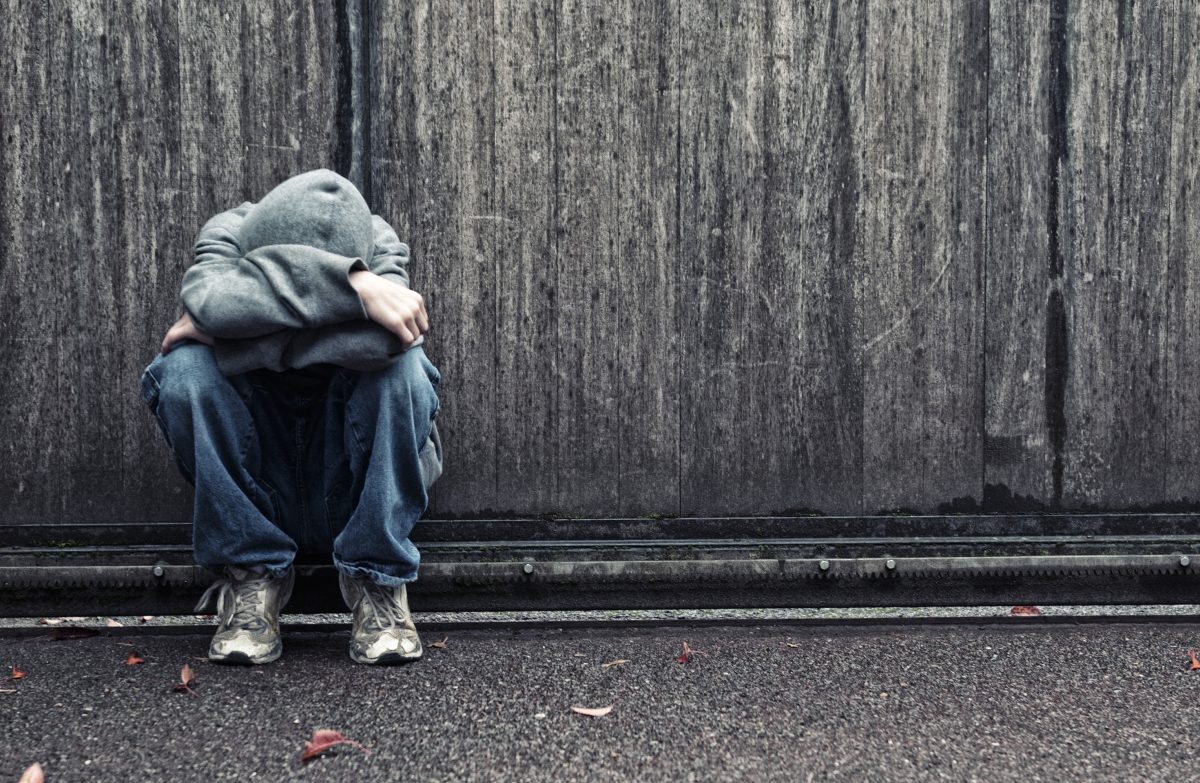
The Conflict Resolution Service and Marymead will implement a coordinated ACT Government funded response to family conflict aimed at preventing youth homelessness. Photo: File.
The ACT Government has announced full and ongoing financial support for a coordinated response to one of the biggest contributing factors to youth homelessness, family conflict.
Expanding on the current Safe and Connected Youth Program (SACY) to include therapeutic respite residence Ruby’s House, the early intervention program will target children aged eight to 15 who are experiencing family conflict and are at risk of homelessness.
Following a successful two-year test pilot, the Conflict Resolution Service (CRS) will work as the program’s lead agency, with not-for-profit organisation Marymead managing the residential component to deliver Canberra’s first evidence-based approach for children under 15.
CRS CEO Melissa Haley said it was not a pivot for the company.
“Our core function is to work with people who are in conflict,” she said.
“CRS will work with the young person and their parents through therapeutic case management, family counselling and family mediation. The goal is to bring the young person and family in the room together to work at the root cause of the conflict, move them through it and develop agreements going forward so the relationship can rebuild and have successful long terms outcomes.”
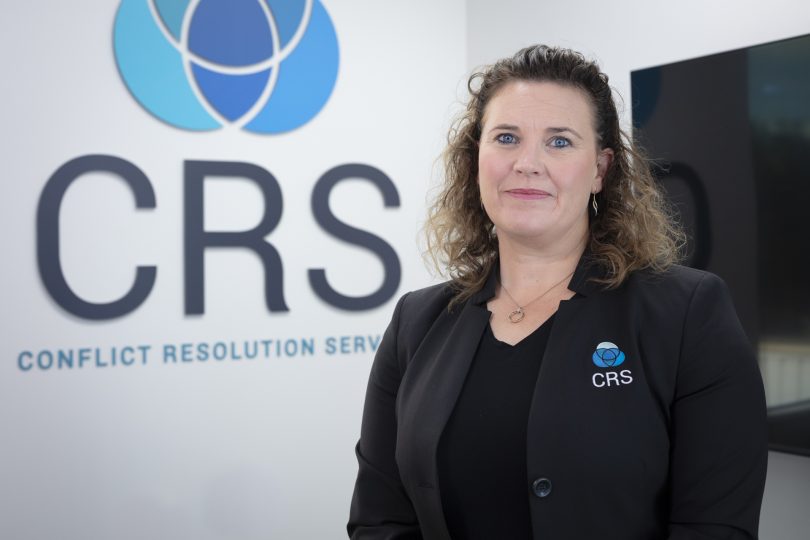
Conflict Resolution Service CEO Melissa Haley. Photo: File.
Ms Haley said, for a variety of reasons, not every child can return to the family home safely but hopefully can maintain ties.
“Having a connection to family has been proven to have good long-term benefits for children,” she said.
“We may not be able to rebuild the relationship in the home, but even having it in a different environment has positive impacts.”
Ms Haley said the holistic approach yielded a kind of wraparound support, including skills that could be applied outside the home (such as in the school environment), proactive help for siblings that prevented them from entering any kind of system and the all-important Ruby’s House.
Ruby’s House is a fit-for-purpose residential house providing respite to children that Ms Haley says can be pivotal to success.
“One night away can defuse the situation at home,” she explained.
“We know that means the young person doesn’t then run away, which can place them in an inappropriate environment where they might mix with people who aren’t the best influences in their lives.”
Though funded by the ACT Government, businesses and organisations such as Rotary Club of Canberra, Monarch Building Solutions Facilities Management, IKEA and Canberra Toyota have backed the program with significant financial and in-kind support.
Marymead CEO Tracey Hall said the organisation was “thrilled” to partner with CRS in the program.
“From the outset, the program has been developed through a genuine co-design and co-production process,” she said.
Minister for Families and Community Services Rachel Stephen-Smith said the SACY program was the product of “co-design and ‘try, test and learn’ implementation”.
“I sincerely thank the young people and non-government organisations who have brought the program to life and I know it will make a real difference in the lives of young Canberrans and their families,” she said.
“Safe and Connected Youth reflects our commitment to early support and helps build a holistic and integrated service system to achieve the best outcomes for children and families.
“It’s a great example of what we can achieve when we work together.”
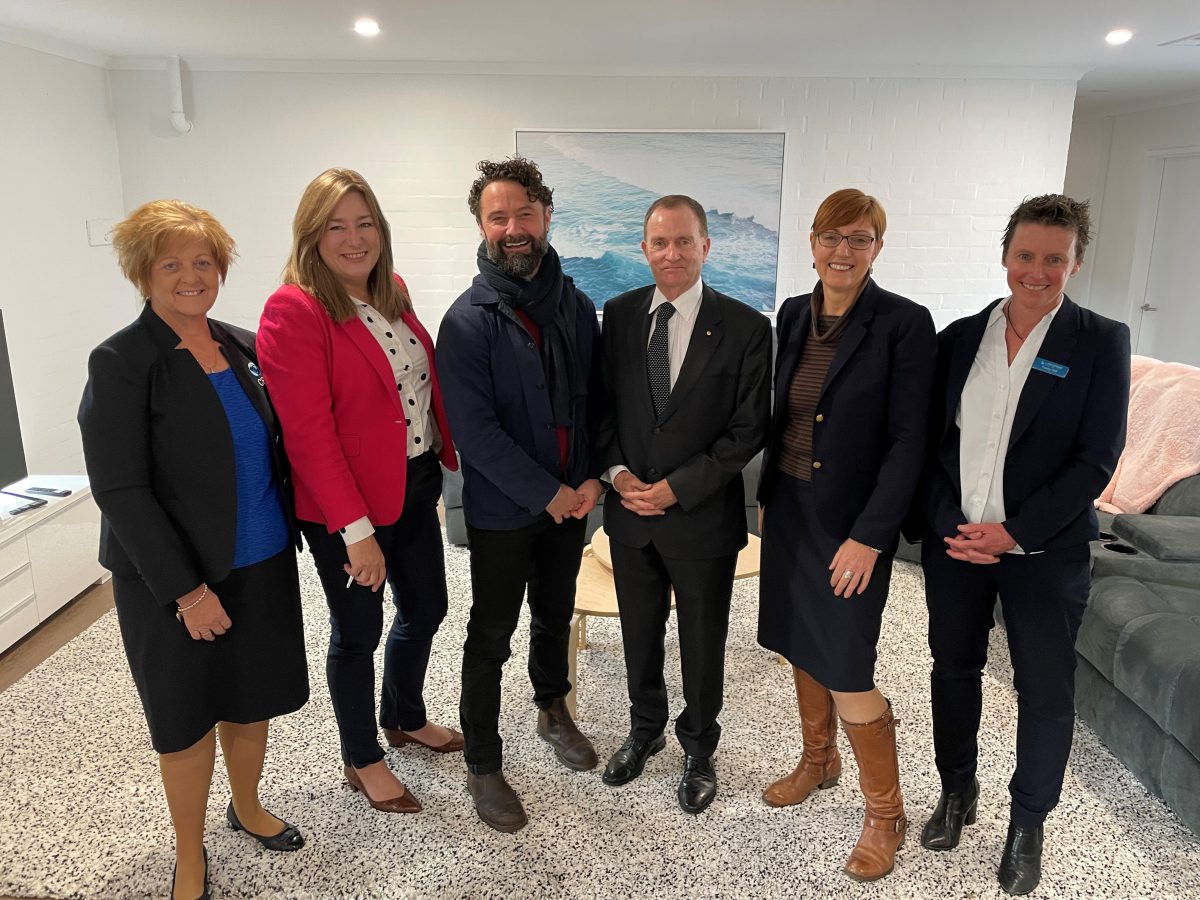
CRS Director Family and Youth Programs Kim Bool, Minister Yvette Berry, Youth Coalition CEO Dr Justin Barker, Rotary Canberra’s David Marshall, Minister Rachel Stephen-Smith and Marymead Deputy CEO Tracey Hall. Photo: ACT Government.
Young people with lived experiences co-designed Ruby’s House to create a homely and inclusive space for their peers.
From thoughtfully mismatched furnishings to the floorplan itself and the outdoor spaces, the six-bedroom property shows the results of that consultation, Marymead director Client Services Ruth Jalloh said.
“The young people we consulted with wanted somewhere that didn’t feel clinical, some place that could be a home,” she said.
“For many of the young people who’ll come to Ruby’s, it might be the first time they’ve stayed away from home and that can be frightening for a young person already experiencing conflict at home.”
Ms Jalloh said they also had to be “smart” in balancing communal and personal spaces. Kids feeling social could, for example, eat a meal at the family-style dining table, but there were also more secluded environments to combat sensory overload.
She added that therapeutic youth workers would be on-hand to conduct “incidental counselling”.
“They might cook with the young people, creating opportunities to connect while imparting new skills and knowledge that kids can take home,” she said.
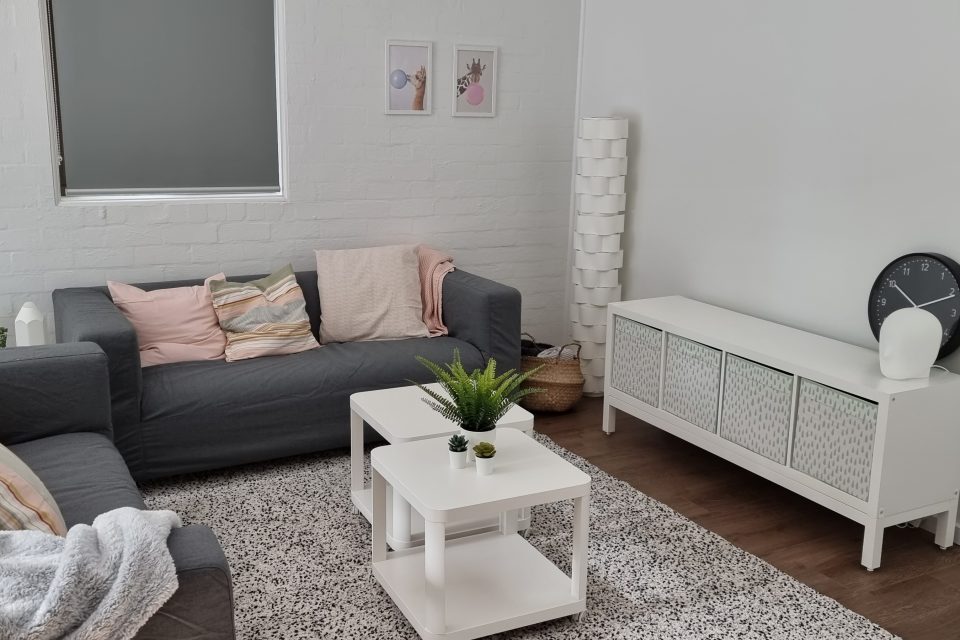
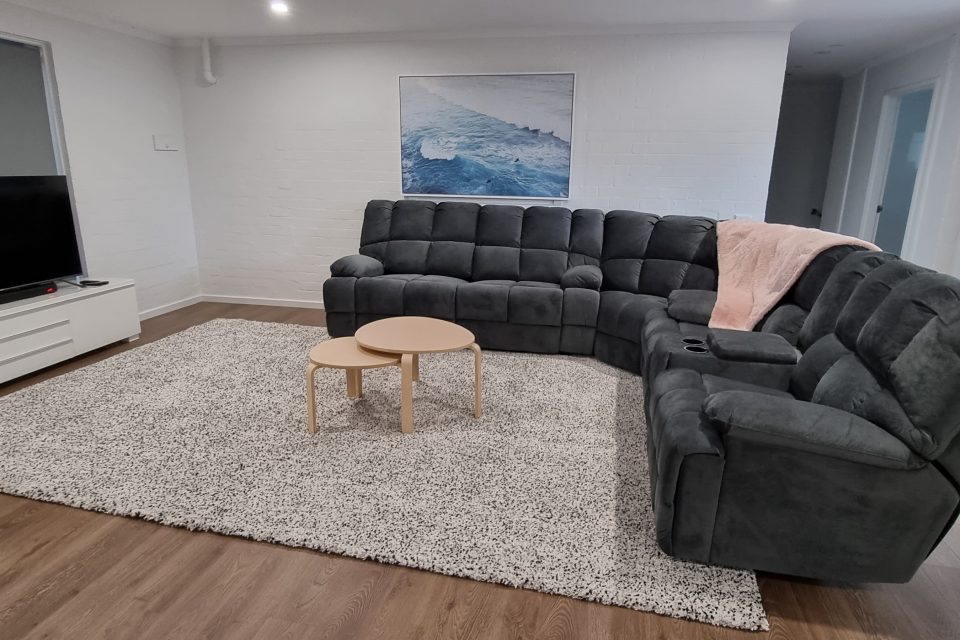

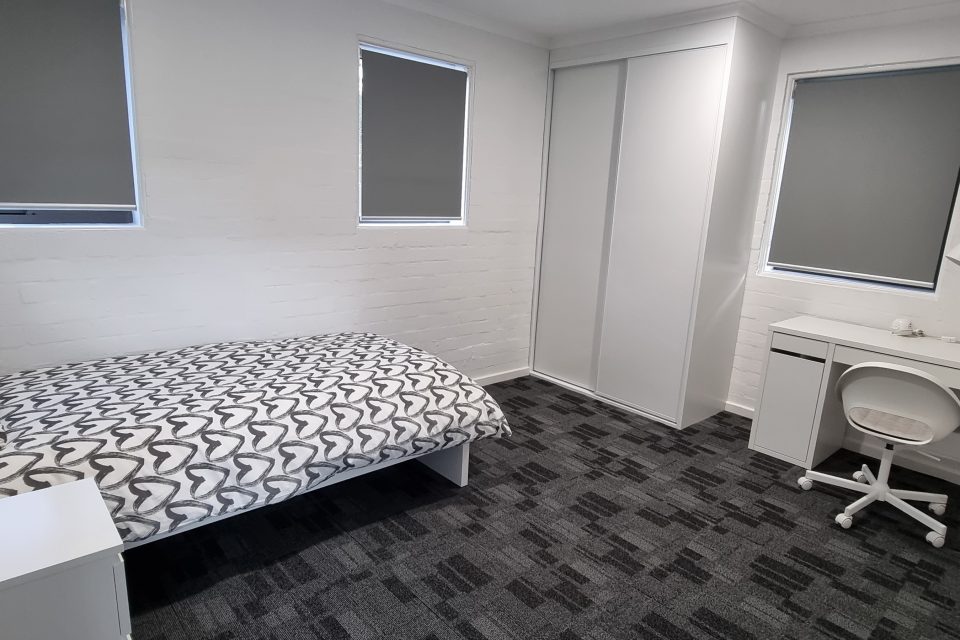
“There’s also an expectation they take care of their space while there, and this includes making their own bed and changing the sheets when it’s time to leave, so the space is ready for the next person. We have found this gives them a sense of ownership and responsibility that many of them haven’t felt before.
“We have already had one mum say after just one night at Ruby’s, her daughter came home and started making her own bed – something she had never done before.”
Children can be referred to the Safe and Connected Youth Program via several channels from child and youth and protection services to schools and even self-referral.
Anyone who wants to access the program for themselves or someone they know experiencing conflict can call CRS on (02) 6189 0590 or fill out the referral form using this link.












